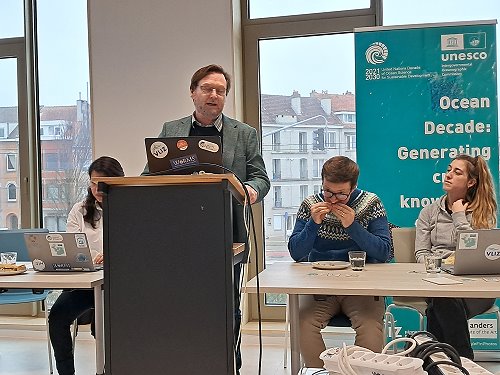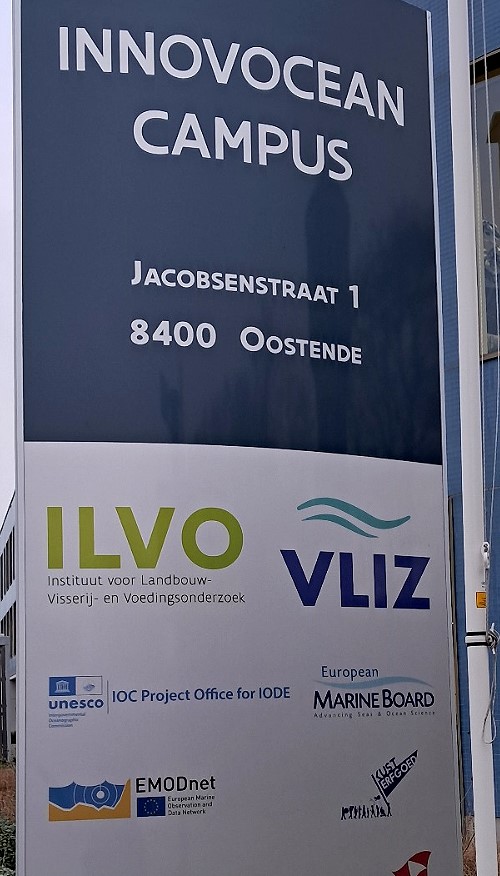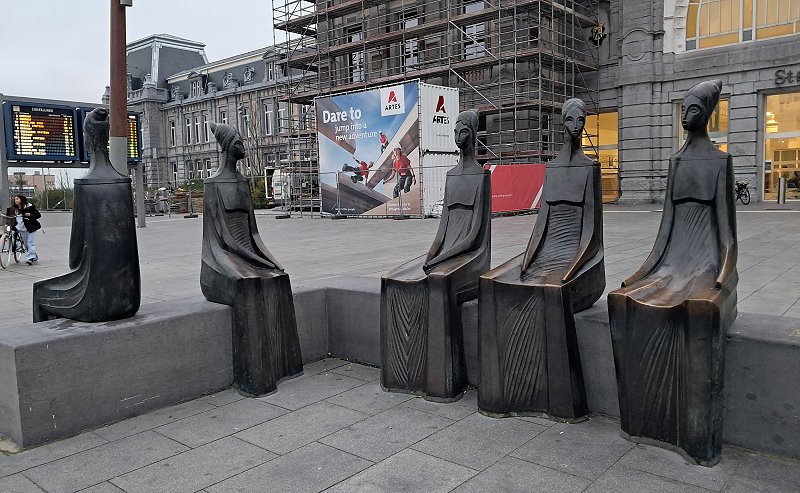The InnovOcean Campus at VLIZ in Oostende hosted the last open group meeting for the year of the National Decade Committee for Belgium on Friday, on December 13, 2024. The focus this time was on digitalisation and the skills needed to make judicious use of it. Ann-Katrien Lescrauwaet, Director International Relations at VLIZ and Secretary of the Decade Committee, chaired the meeting. She welcomed Sophie Mirgaux of the SPF Public Health Service as the Belgian Special Envoy to the Ocean.

Conor Delaney, EMODnet
Conor Delaney presented the recent changes to the European Marine Observation and Data Network (EMODnet) now offering central data services rather than thematic stand alone coverage. It is now available as a service of DG MARE, European Commission. The central technical team is channelling standardised data from different sources, including Copernicus, into what they call a ‘data lake’ and then develop a variety of applications, e.g. for time series interpretation and modelling. The modelling can provide maps of species distributions today and projected forward as climate change affects marine life. At this point, the distribution maps only consider temperature, salinity and depth for current and projected species distributions, but not yet habitat. Mundus maris suggested that collaboration with Aquamaps hosted by Quantitative Aquatics, which already provides such services including projections of what are suitable habitats and likely future distributions.
 Developments are also driven by the EDITO project, which is part of the efforts to develop a digital twin of the ocean, and presented by Frederic Leclercq and Willem Boone. EDITO has an infrastructure and a modelling part. Resolution of data so far are medium scale, but complementary work by a team of the Belgian Natural Science Institute in Brussels offer higher resolutions for certain parameters which can be more directly useful to local decision makers. Clearly, there are synergies between the different developers and potential users which the Decade Committee is helping to discover and promote. The EDITO2 project will focus more on onboarding of users to facilitate their exploitation of own data in tandem with those already in the system.
Developments are also driven by the EDITO project, which is part of the efforts to develop a digital twin of the ocean, and presented by Frederic Leclercq and Willem Boone. EDITO has an infrastructure and a modelling part. Resolution of data so far are medium scale, but complementary work by a team of the Belgian Natural Science Institute in Brussels offer higher resolutions for certain parameters which can be more directly useful to local decision makers. Clearly, there are synergies between the different developers and potential users which the Decade Committee is helping to discover and promote. The EDITO2 project will focus more on onboarding of users to facilitate their exploitation of own data in tandem with those already in the system.
The second part of the meeting focused on acquiring and developing skills required to navigate the growing demand for combining different sources of data in meaningful ways. Ana Carolina Mazzuco is the International Oceanographic Data and Information Exchange (IODE) Training Coordinator of the Intergovernmental Oceanographic Commission (IOC) of UNESCO and based at VLIZ. Ana Carolina explained how they developed a learning management system and deliver what may be termed ‘training for trainers’ to support teachers and other multipliers in their valuable work to make data and knowledge about the ocean more widely accessible and help with assessing the effectiveness of training efforts.
She was quite interested in the role play ‘Protecting Blue Horizons’ developed by Mundus maris about making a marine protected area work in practice and tested earlier in some occasion, including World Ocean Day events in Argentina and Cameroon.
On the way back one could not but notice the monument of the fisher women (1998) by native Belgian sculptor August Michiels (1922 – 2003) in front of the train station harking back to the times of more perilous North Sea fishing out of Oostende.

Fisher women, 1998 by August Michiels, Oostende
